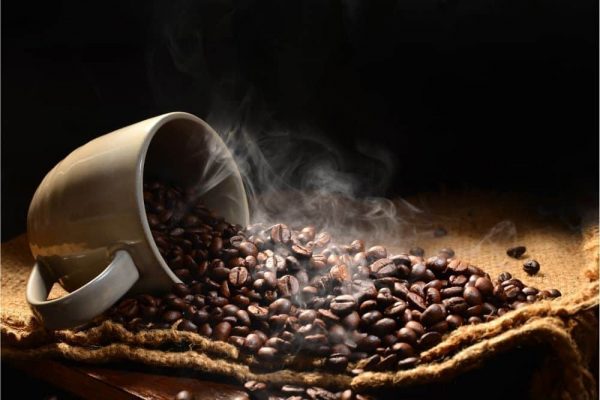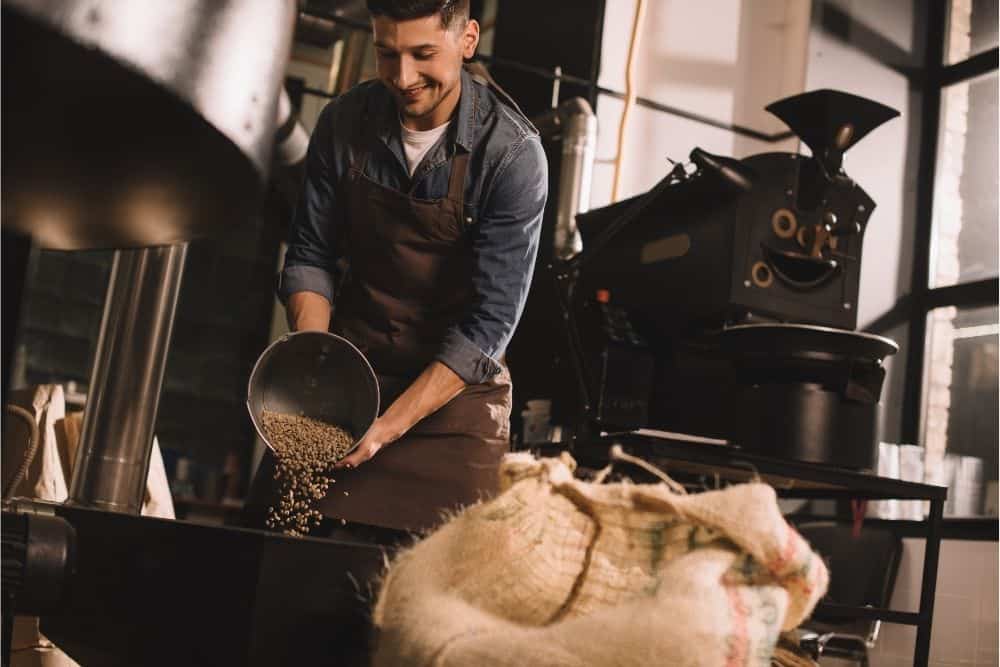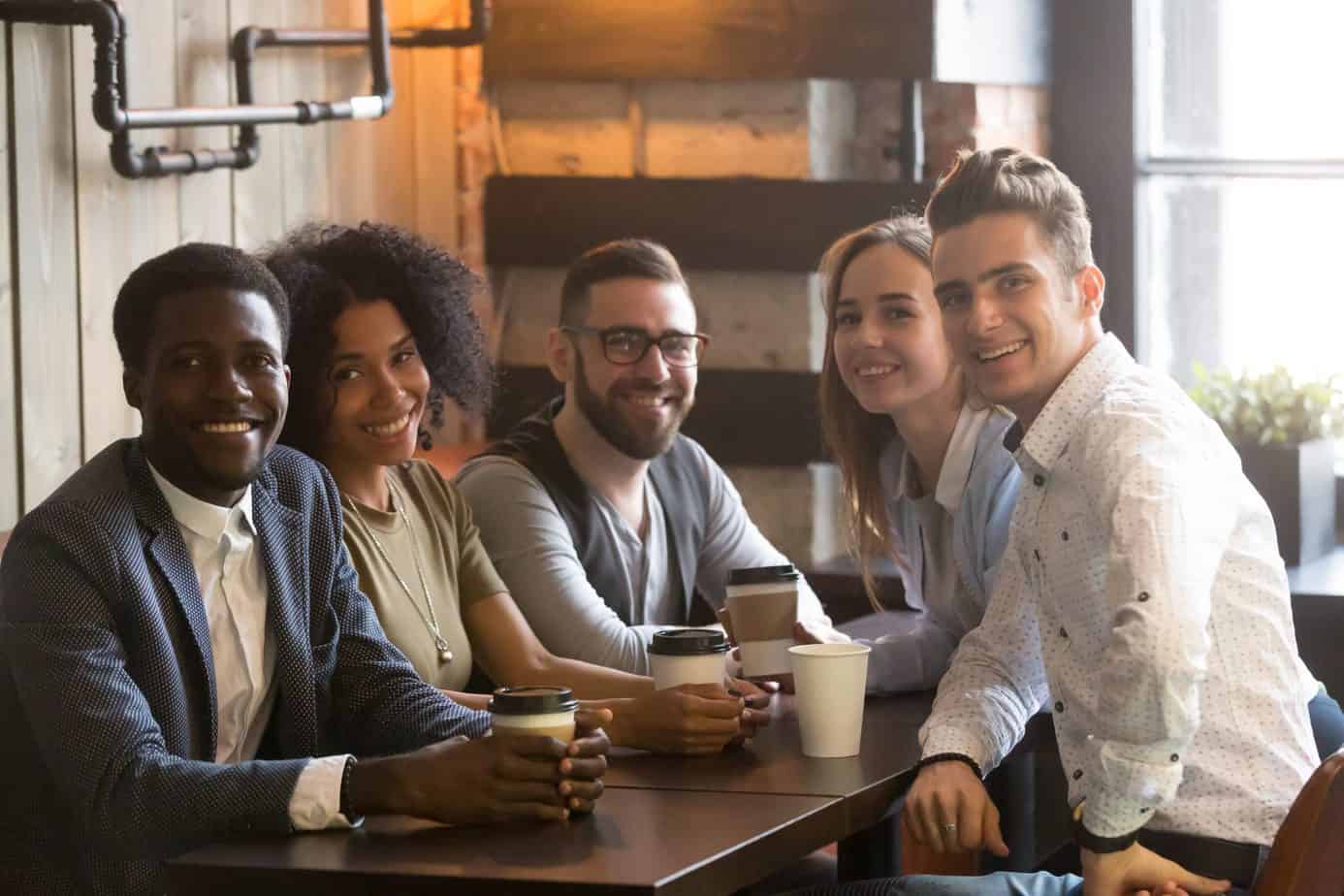Last updated on October 30th, 2023 by Jules Winnfield

Coffee makes the world go round, all thanks to caffeine. Caffeine is the stimulant found in coffee that is responsible for giving you powers of clarity, focus, sharpness and energy when you need it. It is also classed as a drug.
While you may be a coffee snob who enjoys the rich aromas and flavors of your coffee, most people drink coffee purely for its caffeinated qualities, rather than taste.
Maybe the caffeine is to help get you up on those early morning work days, before or after your workout session, or to help you get through a couple of late nighters. Or maybe you cant stand too much caffeine because it gives you the shakes.
Either way, it makes sense for you to be well informed about which coffee has the most caffeine, so that you can either dodge these coffee types or seek them out.
If you’re drinking coffee, the last thing you want to do is buy a super charged coffee that has you crashing by lunch time. But on the other hand, you don’t want to waste money on coffee that has negligible caffeine levels.
In fact, did you know coffee isn’t even the most caffeinated hot beverage? Tea actually has almost double the amount of caffeine as coffee does – thought you knew coffee?
Read on to learn more secrets about coffee and how to get the most caffeine out of each bean!
How Does Caffeine Find Its Way Into Coffee?
The primary source of caffeine content in coffee comes from coffee beans. Caffeine content varies widely depending on which type of coffee bean you buy as well as the methods used to prepare the coffee bean.
Like many plants, the coffee or ‘coffea’ plant can vary its caffeine content by pod and even by bean, so caffeine content must be monitored during the preparation process.
What is the Recommended Dose of Caffeine?
Commonly, one serving of coffee could range from 80-150 milligrams per serving. The FDA recommends around 400 milligrams a day as the recommended dose for healthy adults.
Although this can vary widely depending upon the activities you are engaging with that day as well as your own specific metabolism.
So when you do the math, the recommended daily dose of caffeine is around 3-4 cups of coffee per day depending on how you take it.
But don’t forget that coffee is not the only source of caffeine!
Any amount of chocolate, tea, sugary soft drinks, or even fruit, could completely change your caffeine intake for a day.
Because its all personalized, you should think about your own caffeine intake and consider your own biological make up when deciding what is the best dose of caffeine for you.
What’s the sweet spot of caffeine that gives you the energy pep you need without the shakes, jitteriness, anxiousness, and fast heart rate from too much caffeine?
We sometimes forget that caffeine is a drug and should be dosed like any other stimulant/drug… with a personal customized touch.

How Does Roasting Affect Caffeine Content?
The way the coffee bean is prepared can have a large affect on the caffeine content of that coffee bean.
For example, most people believe the caffeine content is reduced as the drug becomes unstable at high temperatures. This is not necessarily true. Caffeine is actually a super stable drug even at high temperatures (hence why caffeine content doesn’t change as a result of the high temperature of boiling water.)
However, this isn’t a complete myth. The caffeine content is affected by roasting, but only because the mass of the coffee bean is reduced in the roasting process due to the evaporation of water.
So, dark roast coffee beans (which have been roasted for longer) generally have less caffeine because each individual bean has lost some mass and therefore lost some caffeine too. Thus, a light roast generally has more caffeine since the mass of the bean is more because it has been roasted less.
Which Coffee Beans Contain The Highest Caffeine Content?

In general, there are often two type of coffee beans that are talked about when it comes to caffeine content – the Arabica bean and the Robusta bean. Although, both beans are used for different purposes beyond their caffeine content.
For example, the Robusta bean can grow quicker and bear more fruit than the Arabica bean.
Generally, coffee farmers find that Arabica beans have around 1.9 mg of caffeine per bean, although this can vary as mentioned. This translates to around 1.2-1.5% caffeine by weight, a much better way to measure caffeine content accurately.
Conversely, the Robusta bean has the highest level of caffeine content at around 2.9 mg per bean, and around 2.2-2.7% caffeine by weight.
What About Instant Coffee?
Ever wondered how your friends can knock back cups of instant coffee but that one espresso shot you got from your local coffee shop has given you the shakes? Instant coffee and brewed coffee can both vary widely in terms of caffeine content.
First, caffeine content can vary depending on the brew style. For example, there is more caffeine in an espresso compared to an equal volume of drip coffee. This is because of differences in the brewing process.
Secondly, it’s generally the case that instant coffee has less caffeine content than ground coffee. The difference between both is small at around 60-80 mg in instant coffee and 60-120 mg in terms of brewed coffee. But again, this isn’t the best way to measure caffeine content per cup.
Portion control is a huge thing when it comes to caffeine content. If you measure out four teaspoons of instant coffee into one cup, and compare it to four tablespoons of ground coffee in a cafetiere, it would be almost impossible to tell which has more caffeine content because the dosing varies.
What you classify as a ‘spoon’ could also change. What one person may call a spoon of instant coffee could be completely different amount to what another would call the same measurement.
But, if you measured out by weight the same amounts of instant vs brewed coffee, then instant is usually lower in caffeine content.
Weighing out your coffee via weight measured by a digital scale can increase your ability to control caffeine consistently rather than utilizing flawed measurements such as teaspoons.
Moreover, individual instant coffee brands and coffee ground makers can also vary widely. Some brands will increase their caffeine content while others will lower it. So it makes it even harder to compare caffeine content cup for cup.
Which Coffee Brands Have the Most Caffeine?
Comparing the caffeine content of actual branded ground coffee is much easier than doing it cup by cup. These brewing companies often have to declare their caffeine content, as reported by independent labs, on the outside of their packaging per the FDA’s rules. Caffeine is a drug and must be declared the same way alcohol content needs to be.
Here are four of the most popular well-known ‘high caffeine’ ground coffee brands:
- Death Wish Coffee – This coffee has around 728 mg of caffeine per serving which is well over the recommended dose. It is made with a blend of Arabica and Robusta beans from India and Peru.

- Biohazard Coffee – Biohazard’s website states they have a caffeine content of 928 mg per serving which they proudly declare as double your daily recommended dose.

- Black Rifle Coffee – This is a veteran owned company that donate profits to the Veterans charities. They are also an American brand. Their caffeine content is shrouded in mystery. They report it is double your recommended dose so we can guess it is around 1000 mg, which is crazy high! What we do know is that they use 100% Excelso grade beans which are a form of Colombian Arabica coffee.

- Devil Mountain Coffee – This company boasts making the strongest coffee in the world, which isn’t verified. However, we wouldn’t at all be surprised as their coffee is around 1555 mg of caffeine per 12 ounce cup. This is more than three times the FDA recommended dose. This is some serious stuff, likely only for people who have developed a large tolerance to caffeine! This is all thanks to a 100% Robusta bean brew.

Also you can find some of our favorite strong coffees in K cup pods too for that single serve quick morning kind of coffee!
The Final Say
We love coffee for the caffeine kick it gives us before work, during work…and pretty much whenever we need it! And now you know how to better monitor and control your caffeine consumption.
While some might find this idea as pointless as counting calories, it’s always good to keep an eye on your consumption of a stimulant like caffeine especially if it starts to have adverse effects on you.
And while I know you may give an eyeroll, decaf may be an option to consider if you have to slow down on the caffeine but you still want the taste of coffee.

What we discovered in this article is that caffeine content per cup can be hard to work out. Branded coffee grounds make it is easier since the FDA requires them to declare the caffeine content on the label. When it comes to a single bean (bean type, roast profile) or even brewing methods (espresso, drip coffee, cold brew), caffeine content can vary widely.
If you want the strongest caffeine rich coffee, you can find them in well known popular brands like Death Wish Coffee. But keep in mind, these double to triple strength coffee brands exceed the FDA recommended daily dose. So be careful and monitor your caffeine intake to see what works for you.
With great power comes great responsibility… Now keep sipping my friends!
Coffee Has Never Read This Good!
Sign up for a FREE newsletter to the best home brewing tips and guides
Thank you for subscribing to The Cup Coffee House Crew! There's a surprise in your Inbox 🙂
Something went wrong.
- About the Author
- Latest Posts

“Jules” is a pharmacist by day and investor, writer, and health nut by night. When he’s not sipping on some coffee laced with MCT oil during an 18 hour fast, he is writing about how to get your coffee grind on or playing Monopoly with his 2 boys and wife. Ahh…life is good!
